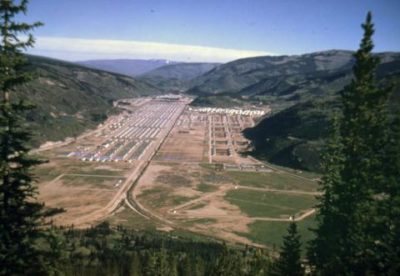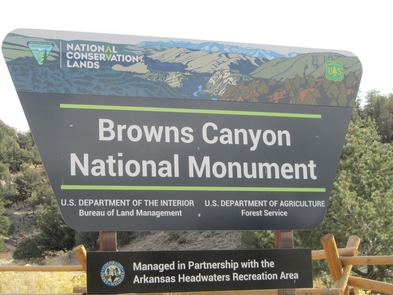The U.S. House of Representatives on Friday passed the Colorado Outdoor Recreation and Economy (CORE) Act, along with other public land provisions, aiming to move the CORE Act, along with other public land provisions that haven’t made it through the Senate in previous sessions.
Colorado U.S. Senators Michael Bennet (D) and John Hickenlooper (D) applauded House passage of the Colorado Outdoor Recreation and Economy (CORE) Act, their legislation to protect over 400,000 acres of public lands in Colorado, including establishing new wilderness, recreation and conservation areas. and grow the state’s outdoor recreation economy.
“Not even a month after the introduction of the CORE Act, we are thrilled that our bill has passed the House for the third time. Congressman Neguse and the entire delegation have been incredible partners on the CORE Act, and I’m grateful for their leadership in shepherding our landmark legislation through the House,” said Bennet. “The widespread support for the CORE Act across Colorado speaks for itself. Now that the House has done its job, Senator Hickenlooper and I won’t stop working until this bill passes the Senate and is signed into law.”
“The CORE Act represents more than a decade of collaboration by Coloradans across the state to protect and strengthen our outdoor recreation economy and our public lands,” said Hickenlooper, a member of the U.S. Senate Committee on Energy and Natural Resources which has jurisdiction over the bill. “They say third time’s the charm. The House’s passage of the CORE Act today – for the third time – means we’re poised to prove that expression true. We’re eager to finish the job in the Senate.”
Bennet and Neguse introduced the comprehensive CORE Act for the first time in January 2019, following years of work in Colorado to develop, draft, and negotiate the four individual titles in the bill. Then, earlier this month, Bennet, Hickenlooper, and U.S. Congressman Joe Neguse reintroduced the CORE Act in the U.S. Senate and U.S. House of Representatives. On Tuesday, Interior Secretary Nominee Deb Haaland announced that the Biden Administration supports the CORE Act during her confirmation hearing in the Senate Committee on Energy and Natural Resources.
The CORE Act combines four previously introduced Colorado public land bills, which have been in development over the past decade:
- The Continental Divide Recreation, Wilderness, and Camp Hale Legacy Act
- The San Juan Mountains Wilderness Act
- The Thompson Divide Withdrawal and Protection Act
- The Curecanti National Recreation Area Boundary Establishment Act

Camp Hale was set up to train the 10th Mountain Division soldiers for fighting in the rough terrain of the Alps to win World War II. If the CORE Act passes, it would become the first-of-its-kind National HIstoric Landscape. Image courtesy of Colorado Encyclopedia.
Of the land protected by the bill, about 73,000 acres are designated as new wilderness, and nearly 80,000 acres are designated as new recreation and conservation management areas that preserve existing outdoor uses, such as hiking and mountain biking. A broad coalition of counties, cities, towns, local leaders, conservation groups, sportsmen, and a wide range of outdoor businesses have announced their support of the bill.
The bill also includes a first-of-its-kind designation for Camp Hale as a National Historic Landscape, to honor World War II veterans and Colorado’s military legacy, and prohibits new oil and gas development in areas important to ranchers and sportsmen in the Thompson Divide.
According to The Wilderness Society, the bill would preserve lands including the Continental Divide and Camp Hale, wilderness in the San Juan Mountains, and the Thompson Divide, and officially define the boundaries of Curecanti National Recreation Area while restoring public access to the surrounding fishery, according to The Wilderness Society.







Recent Comments